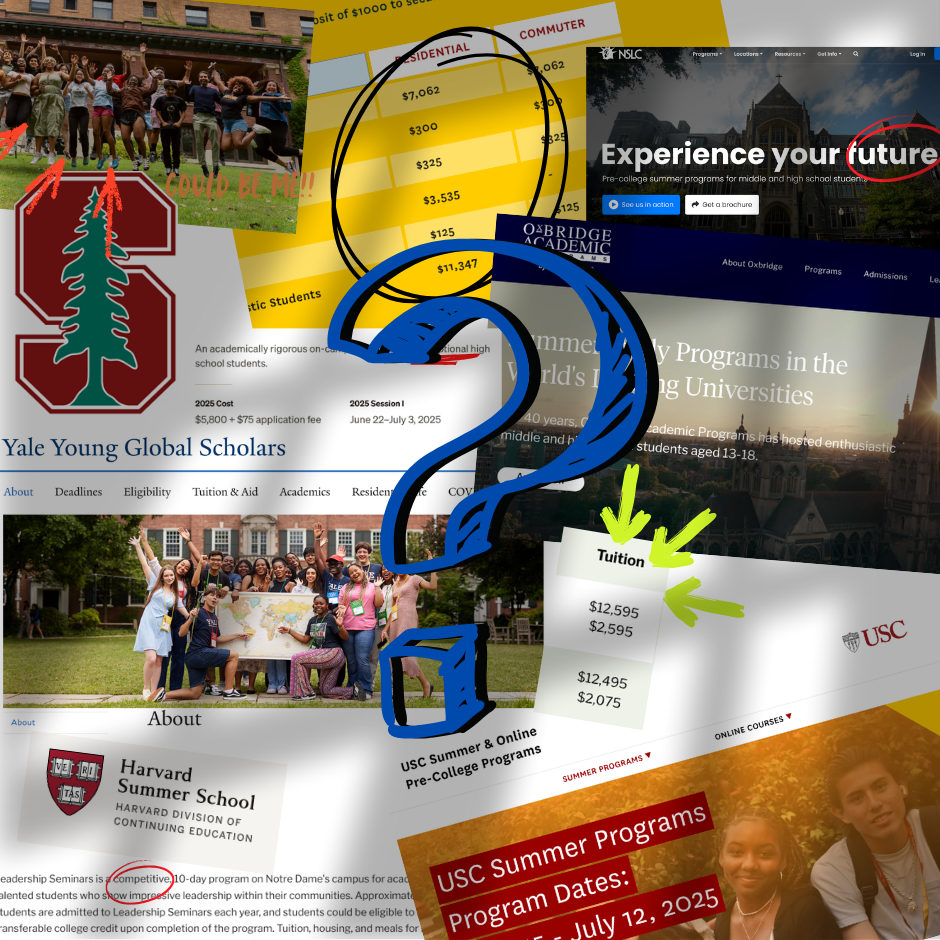It usually starts with an email: “Congratulations! You’ve been selected to join our exclusive program.” These messages land in students’ inboxes like golden tickets, promising prestige and opportunity. However, behind the enticing offers, students and families should consider whether elite summer programs justify the hefty price tag that often ventures into the thousands.
Many high-end summer opportunities, such as research programs or pre-college classes, are not very selective, catering to those who can afford the price rather than those who would benefit from the experience, according to Forbes. This process is known as “pay to play,” and while students may gain the illusion of prestige, the experience can be generic with a lack of personal mentorship. Pressure to participate in these programs remains prevalent — but may be unnecessary, according to physics teacher Leanne Jimenez.
“I know some people feel that [expensive experiences aid in applications], but it really isn’t true,” Jimenez said. “In fact, I think that’s the opposite. The [programs] that offer scholarships for free or only boarding, for example, those are the ones that actually, to me, are a green flag and say that they’re willing to do this for you guys because it’s such a valuable opportunity.”
Cost aside, some may argue that the chance to experience college dorm life and engage in challenging coursework provided by these programs allows students to enhance their expertise in a subject area while offering benefits such as networking and exposure to academic resources, according to the Foundation for Teaching Economics. These experiences can provide a valuable glimpse into college life and future academic paths.
However, while elite programs may offer academic and social advantages, students can also pursue their passions through other meaningful, low-cost opportunities. With local options such as college classes, volunteering with non-profit organizations, internships and jobs, students can gain real experience while attaining critical career skills, according to NBC. Likewise, activities that offer benefits such as a stipend or a virtual option can demonstrate a program’s legitimacy and reduce barriers. As senior Agrin Khatami notes, colleges can truly witness the drive of the student, rather than an acceptance into a high-cost program.
“What [admissions officers] really want to see is character building,” Khatami said. “What they really want to see is who you are and you doing things you care about. Spending a lot of money doing something that you’re not passionate about just to get a fancy Ivy League program on your college application, versus doing something that actually matters and has a community-level impact — the latter develops the amount of character you need to actually write those essays fulfillingly.”
Students working to build up personal experiences and resumes should pursue what they care about, what they’re curious about and what motivates them. If doing so involves an elite program, so be it — but students should strive to make summer breaks meaningful.




